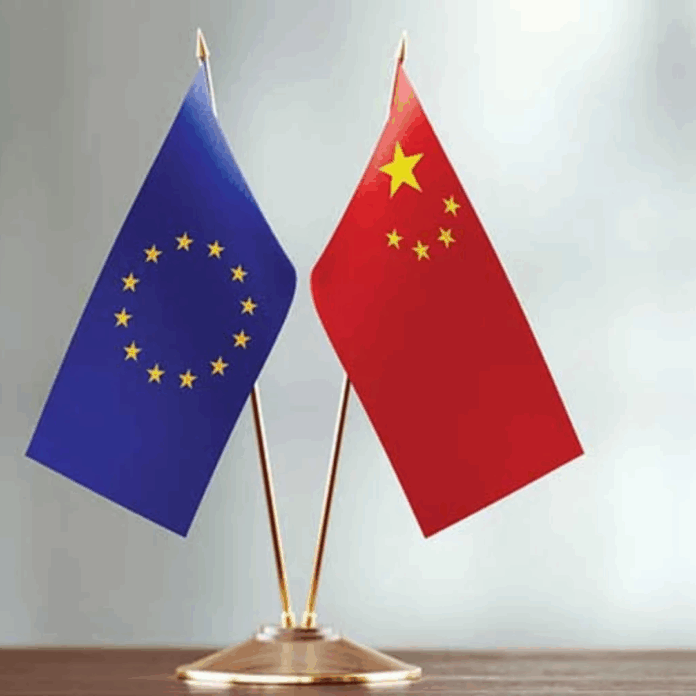The European Union is preparing to take a strong step by targeting two Chinese banks that it says are helping Russia keep its war machine running. This move is part of a new sanctions package that the EU is working on. Sanctions are like punishments that countries use to stop others from doing things they think are wrong — in this case, helping Kremlin continue its war in Ukraine.
This is the first time the EU plans to punish banks that are not from Europe. The goal is to stop money and goods from reaching Russia through secret or hidden paths. These two banks, though small and regional in China, are believed to have used digital currencies — like cryptocurrencies — to help send restricted goods to Kremlin. These goods are banned under EU rules because they can be used for war.
The plan is still being talked about among EU countries, so changes might happen before it becomes final. But if passed, it would show that the EU is serious about stopping anyone, no matter where they are, from helping Russia find ways around existing bans.
Fear of Sanctions Being Dodged Through Chinese Banks
The EU is becoming more and more worried that countries or companies not directly involved in the war are still helping Russia by giving it access to goods and money. Even though the EU has already placed many restrictions on Russia, there are signs that Kremlin is finding new ways to get what it needs.
These new sanctions are being suggested just before the EU meets with Chinese leaders in Beijing. That timing makes the decision even more sensitive, as it could affect how China and the EU get along. China has said before that it doesn’t give weapons to Russia, and it believes that the business between Chinese and Russian companies is normal and legal.
???? EU Unleashes Hardest Sanctions Yet: 77 Russian Ships Banned, Banks Cut Off from SWIFT
Still, trade between China and Kremlin has grown fast. In 2024, it reached around $245 billion — more than double what it was just four years earlier. Since many Western countries have blocked Russia from using their banks, Russia is now using China’s currency, the renminbi, more and more to pay for things.
The EU is now watching very closely how Russian companies are managing to buy items that are supposed to be blocked. Things like military gear, parts for weapons, and sensitive technology should not be going to Russia. But they still are, and the EU believes banks and companies in other countries might be secretly helping make that happen.
Global Pressure Mounts Amid Growing Trade Links
The EU says that anyone helping Russia continue its war shares some of the blame. They believe that if Russia didn’t get help from outside its borders, it would have a harder time continuing its attacks in Ukraine. This is why they want to stop not just Russian banks and companies, but also any foreign ones that may be part of the chain.
Even though the sanctions package is being pushed by the EU, officials say that it also depends on how the United States reacts. The EU often works together with the U.S. on these kinds of actions, and next week’s G7 meeting in Canada could be important. That’s where the leaders of seven big economies including the U.S. will talk about how to respond to Russia and other global issues.
As of now, the two Chinese banks in question have not been named publicly. They are said to be small, local banks that used digital money to hide their financial dealings. The European Commission, which is in charge of suggesting and enforcing EU laws, said the main goal is to stop people from finding clever ways to go around the rules.
This plan shows that the EU wants to shut down any escape routes Russia might be using. By looking at foreign banks, especially in powerful countries like China, the EU is taking a more aggressive stance. But this could also make things tricky in its relationship with China, which doesn’t agree with these accusations.
For now, the EU is still discussing the details with all its member countries. Every country in the EU must agree before any new sanctions can become official. This means that even though the plan is bold and clear, it’s still waiting for final approval.
